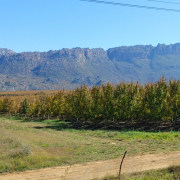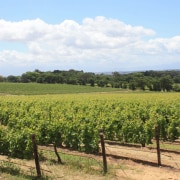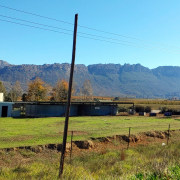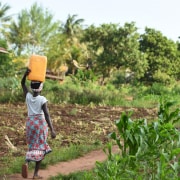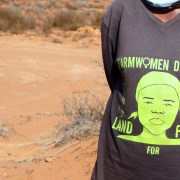|
Getting your Trinity Audio player ready...
|
Image: Vuk’uzenzele
By Melusi Ncala
First published on News24
The South African government, under the African National Congress (ANC) rule, cares little about the plight of marginalised people – and the ANC-led government’s own abhorrent track record in upholding human rights tells the story.
Besides its well-documented service delivery failures, the handling of the land question is another example of the regime’s abysmal governance. Granted, politicians prevaricate whenever reality strikes, and the question then becomes more about their pockets and less about the people. But what happens if this evasiveness and inaction is coupled with corruption?
Part of the answer can be found in Corruption Watch’s work looking at wrongdoing in the land sector as participants of Transparency International’s Land and Corruption in Africa project. We embarked on this line of work after receiving hundreds of complaints that shine the light on corrupt practices in land governance in South Africa. Phase 2 of the project (LCA2) is currently underway.
The graft in land management and administration is often understated. This is because it involves an intricate web of networks that entangle your favourite leaders, big business, tribal authority, and your common variety thief – resulting in an oily, bloody concoction. Just ask the landless masses who are herded like cattle from one landfill to another.
Better yet, ask the human rights defenders of these displaced and dispossessed people about the sight of a bullet-riddled body – one that was protecting a home and a family’s livelihood.
Once you come to grasp the scale and magnitude of wrongful conduct in the agriculture industry, you are left astonished. Thus, you would have to ask the members of the governing party who are so-called notable farmers how much they and their opposition friends, as well as industry players, rake in from this multi-billion-rand sector.
More pointedly, does it take a gift, perhaps a bull or some shares, to sell out helpless people who have placed their trust in you?
Policies compromised by officials and businesspersons
When we undertook to look at the pervasiveness of corruption in land affairs as part of our LCA2 work, we learnt that policies relating to communal property associations, the building of Reconstruction and Development Programme houses, and several other government innovations, were highly compromised by unscrupulous officials, fraudulent businesspersons, and unethical traditional leaders.
True to form, these individuals would, in concert, find ways to enrich themselves and leave multitudes destitute by creating questionable rules to rezone areas, skimming from profits meant for social spending and enforcing the displacement of communities through violence.
The Department of Agriculture, Land Reform and Rural Development (DALRRD) knows about these goings-on, but opts to look the other way because some of their officials are complicit and because they fear to kick the hornets’ nest.
The department knows more, as you will soon find out, but has covered up impropriety to the detriment of the marginalised since the dawn of democracy.
One such instance of secrecy relates to a review of a policy called Farm Worker Equity Schemes that commenced in the 1990s. It is another example of political elites and corporations in the agriculture sector lining their collective pockets with state funds at the expense of labour tenants.
The government commissioned consultancy firm ZALO Capital to review the policy on the basis that they thought something was amiss.
Completed by 2013, the report highlights a review of almost 89 equity schemes – the majority of which are in the Western Cape and the rest are sprinkled across the Eastern Cape, Mpumalanga, and other farming regions in the country.
The report found that in the equity schemes that the state has bankrolled to the tune of about R683-million, there were significant financial irregularities, mismanagement, improper accounting practices, and other forms of possible malfeasance.
The farm workers were the ones adversely affected, while commercial farmers’ bank balances increased to a point where they grew their personal ventures, went on luxury holidays overseas, and invested in other businesses.
Unsurprisingly, DALRRD opted to look the other way and shelved the report despite the innumerable problems of alleged corruption and human rights violations.
Corruption Watch has read the report, but as of this moment, after a decade of existence, it remains suppressed.
To ascertain the extent of malfeasance in the rollout of the Farm Worker Equity Schemes, we conducted research seeking to understand the intersection of land, corruption, and discrimination.
Given that the policy was intended to uplift farm workers from abject poverty following colonial-apartheid land dispossession and to equip them with skills to manage and own farming enterprises, this became the ideal case study for LCA2, as farm dwellers are at the fringes of South African society and are subjected to inhumane conditions of employment and labour.
The government’s proposal to the private sector was to issue financial grants on the condition that the private party would match the monetary figure issued. Grants were given per number of farm workers already working on the farm and whom the private farmer had agreed to bring into the running of the business.
The government would make payments tens of thousands of rands per farm worker on condition that each would receive shares in the business.
Just a money-making scheme for farm owners
But again, corruption would be the order of the day, adding to this regime’s record of human rights abuses, just as they symbolised the previous one that committed crimes against humanity. Hundreds of farm workers were left behind, denied access to the business skills they were promised, and bereft of a better life. DALRRD failed to monitor progress once the money was disbursed, and the farmer-owners were never held accountable for their broken promises.
We chronicle these heartbreaking and tragic accounts in a five-part podcast series, which is complemented by a research report. Both projects highlight how people who suffered immensely for generations are now taken advantage of by commercial interests and government employees alike. This happened, and continues to take place, because this vulnerable group has little access to education, information, and legal assistance. Their main aid comes from civil society organisations.
Listening to the story of the marginalised, you learn that suited individuals involved in this sector are nothing but thugs who prey on the weak, primarily the elderly, women, and people living with disabilities.
Sadly, the long-hidden ZALO Capital report concurs with our findings. But there is no sign of accountability, no change in the grim reality lived by labour tenants. Farm workers and dwellers still live in hovels, they are cheated out of their wages and paid meagre dividends irregularly, they barely have access to healthcare and education, and they are generally isolated from their loved ones.
It is disingenuous of proponents and opponents of the land expropriation with or without compensation debate to entertain this discussion as a solution to the hardships endured by the landless – including the many labour tenants who struggle to this day.
What the Farm Worker Equity Schemes policy illustrates to us, as other policies have done, is that the country’s inability to curb corruption, particularly in the land sector, impedes its efforts to redress, progress, and build anew. Land issues are underpinned by the fact that an economic crime was committed and is presently perpetuated by corrupt activities.
This is what we should consider in our engagement with the podcast and report, and it is in this exercise that we may find the solution.
– Melusi Ncala is a researcher at Corruption Watch.

